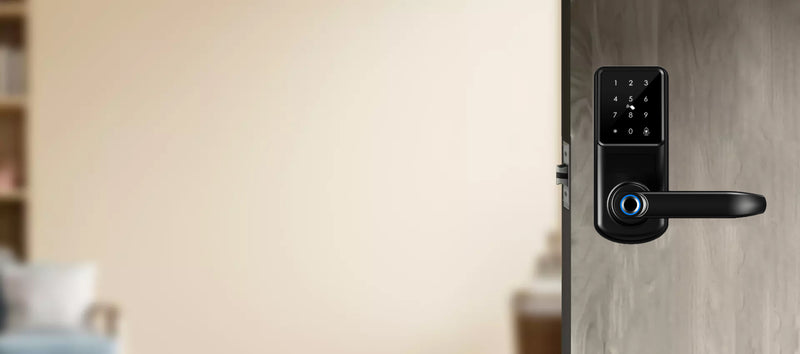Let's Compare Traditional Door Locks with Smart Door Locks To Find Out The Best Security Solution.
The security of our homes is a top priority, and technology is constantly evolving to meet our needs. Smart door locks are becoming increasingly popular, providing a convenient and secure way to protect our homes. The Delta Smart Lock is a cutting-edge smart lock that allows you to control access to your home, while still providing the traditional security of a traditional door lock. In this blog, we will compare the Smart Door Lock and traditional door locks, so you can determine which one is best for your home security needs.
Comparing Traditional Door Locks with Smart Door Locks
When it comes to securing your home and protecting your family, nothing beats having a robust door locking system. Whether you opt for a traditional deadbolt lock or the latest in digital technology, choosing the right system is essential. But when faced with the decision between a traditional lock and a smart door lock, how do you decide which is right for you?
We’ll take a look at the differences between traditional door locks and the Delta Smart Lock, a state-of-the-art fingerprint door lock system. By exploring the pros and cons of both options, you’ll be able to make an informed decision as to which one is best for your home security needs.
Traditional Door Locks - Traditional door locks have been the standard for home security for decades. With a wide variety of options available, these locks are a cost-effective way to secure your home and keep your family safe. From standard deadbolts to more intricate locks with multiple pins and keys, these locks are generally simple to use and easy to maintain.
However, traditional locks have some downsides. As these locks are mechanical, they can be picked or forced open with the right tools. Additionally, if the key is ever lost or stolen, replacing it can be expensive and inconvenient.
Tropernic Smart Lock - The Delta Smart Lock is a digital door lock system that is designed to bring the convenience and security of modern technology to your home. This system uses biometric identification to verify the user’s identity, ensuring that only authorized individuals are able to access your home. Additionally, this system can be connected to a wireless network for remote access, allowing you to control your door locks from anywhere.
One of the key benefits of this digital door lock system is that it eliminates the need for keys or passwords. With this system, you can easily share access with family and friends without the need to give out keys or share passwords. Furthermore, this system is incredibly secure, as the biometric verification prevents anyone from being able to access your home without your permission.
The Pros and Cons of Each System
Although both systems offer excellent security and convenience, it is important to weigh the pros and cons of each before making a decision. Traditional locks are inexpensive and require minimal maintenance, but can be picked or forced open with the right tools. On the other hand, the Delta Smart Lock is incredibly secure but is more expensive and requires a wireless network connection for remote access.
By considering all of the factors involved, you can make the most informed decision when it comes to securing your home. Whether you decide to go with a traditional lock or the Delta Smart Lock, you can rest easy knowing that your home is safe and secure.
Conclusion
In conclusion, traditional door locks and smart door locks both offer unique benefits to homeowners. Traditional door locks are reliable, secure, and cost-effective, while smart door locks offer improved security and convenience. Ultimately, the decision of which type of door lock to use depends on the individual's needs and preferences.



